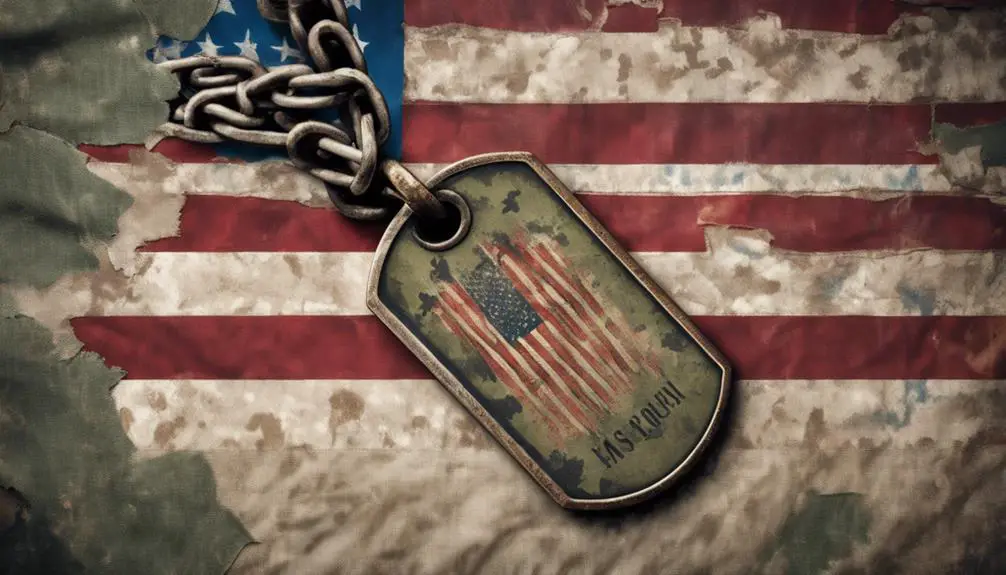You're about to immerse yourself in a world of lingo that's been forged in the heat of battle, where a shared language has been the difference between life and death, camaraderie and confusion. Military slang has been used since ancient times to promote unity, convey complex information quickly, and navigate technologies and operations effectively. You'll need to know essential terms like 'Hooah' and 'Ruck up', as well as acronyms like CO and EOD. Understanding military jargon for vehicles and ranks will also be vital. As you explore this world of military slang, you'll uncover a language that's both functional and fascinating – and you're just getting started.
Origins of Military Slang
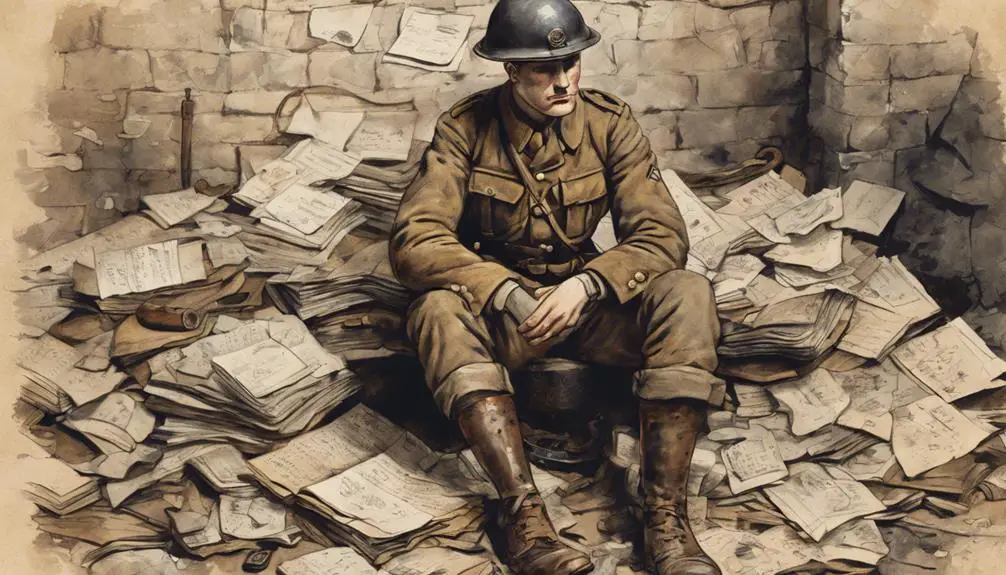
Since the early days of warfare, soldiers have relied on slang to create a sense of unity, establish a unique identity, and often, to disguise communication from the enemy. You might be surprised to learn that military slang has a rich historical evolution, dating back to ancient times.
In ancient Rome, soldiers used slang to distinguish themselves from civilians and to create a sense of camaraderie. This cultural exploration of slang continued throughout history, with each military conflict giving rise to new terms and phrases.
As you dig deeper into the world of military slang, you'll discover that it's not just about creating a sense of belonging. Slang has played a significant role in military communications, allowing soldiers to convey complex information quickly and discreetly.
During World War I, for example, soldiers used slang to describe military tactics, weapons, and even emotions. This cultural exploration of slang has continued to evolve, with modern military personnel using slang to navigate complex technologies and operations.
As you explore the world of military slang, you'll gain a deeper appreciation for the historical evolution of this unique language.
Essential Terms for Newbies
As you enter the world of military slang, you'll want to familiarize yourself with key terms that'll help you navigate everyday conversations with fellow soldiers.
Understanding military etiquette is essential, and it starts with basic terms like 'sir' or 'ma'am' to address superior officers. You'll also hear 'Hooah' (meaning 'yes' or 'agreement') and 'Oorah' (expressing enthusiasm or motivation).
In Boot Camp, you'll encounter terms like 'Drop and give me 20' (doing 20 push-ups as punishment) or 'Sound off' (loudly repeating an order).
You might hear 'Ruck up' (to get ready to move out) or 'Gear up' (to prepare for a mission).
Familiarize yourself with these essential terms to avoid confusion and show respect for military traditions.
Acronyms in the Military
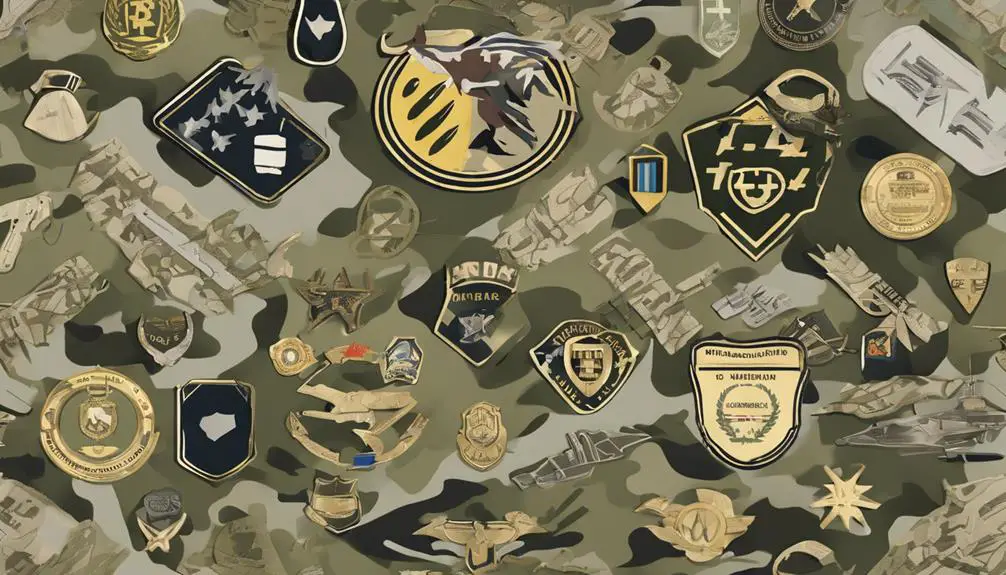
You'll encounter numerous acronyms in the military, with many becoming an integral part of your daily vocabulary. From MILTAC abbreviations to the Military Alphabet System, these shortcuts will help you communicate efficiently and effectively. Here are a few essential acronyms to get you started:
| Acronym | Meaning | Usage |
|---|---|---|
| CO | Commanding Officer | 'I need to report to the CO for a briefing.' |
| EOD | Explosive Ordnance Disposal | 'The EOD team is handling the bomb threat.' |
| COMMS | Communications | 'Check the COMMS system to make sure we're online.' |
As you become more familiar with military terminology, you'll find that acronyms will become second nature. Remember, understanding these abbreviations is important for clear communication and effective teamwork. Take the time to learn and practice using these acronyms, and you'll be well on your way to speaking like a seasoned military professional.
Slang for Ranks and Roles
In the military, every rank and role has its own set of nicknames, and learning these colloquialisms will help you navigate the chain of command with ease. You'll hear 'grunts' referring to infantrymen, 'jarheads' for Marines, and 'zoomies' for Air Force personnel.
Battalion nicknames like 'The Old Guard' for the 3rd Infantry Regiment or 'The Devil's Brigade' for the 1st Special Service Force are also common. Officer stereotypes, such as 'butterbars' for second lieutenants or 'full birds' for colonels, are also widely used.
Understanding these slang terms will help you communicate more effectively with your comrades and superiors. You'll sound more like a seasoned veteran and avoid confusion when giving or receiving orders. Mastering these colloquialisms will help you fit in and build camaraderie with your fellow service members.
Military Jargon for Vehicles
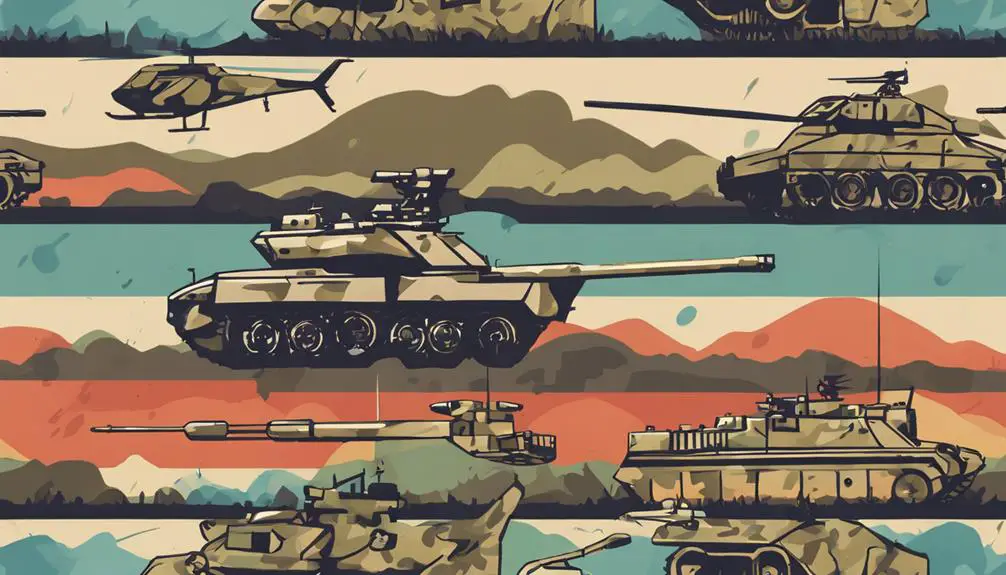
From Humvees to F-16s, military personnel use a distinct vocabulary to refer to their vehicles, and learning these terms will help you identify and communicate effectively about the various modes of transportation in the military.
You'll hear terms like 'Tactical Rides' to describe vehicles designed for combat operations, such as the MRAP (Mine-Resistant Ambush Protected) vehicle. These vehicles are built to withstand harsh environments and protect personnel from harm.
Other terms you might hear include 'Battlewagons,' which refer to large, armored vehicles used for transportation and combat support. You might also hear 'Wheels' or 'Rigs' used to describe general-purpose vehicles, like trucks or SUVs.
Understanding these terms will help you navigate conversations with military personnel and better comprehend the role of vehicles in military operations. By familiarizing yourself with this jargon, you'll be better equipped to communicate effectively and understand the military's reliance on vehicles for transportation, logistics, and combat support.
Code Words for Communication
Military personnel often rely on code words and phrases to convey sensitive information quickly and securely over radio and phone communications. This is especially critical in high-stakes situations where secrecy is paramount.
You may hear coded phrases like 'Bravo Zulu' to indicate a successful mission or 'Sierra Hotel' to confirm a target's location. These coded phrases allow personnel to convey complex information quickly and efficiently, minimizing the risk of miscommunication.
When communicating over secure channels, military personnel use specific code words to guarantee that sensitive information remains confidential. You might hear 'Oscar Mike' to confirm a unit is on the move or ' Lima Charlie' to indicate a message has been received loud and clear.
These code words and phrases are an essential part of military communication, enabling personnel to convey critical information securely and efficiently. By using coded phrases, military personnel can guarantee that sensitive information remains confidential, even in high-pressure situations.
Deployed in Everyday Life
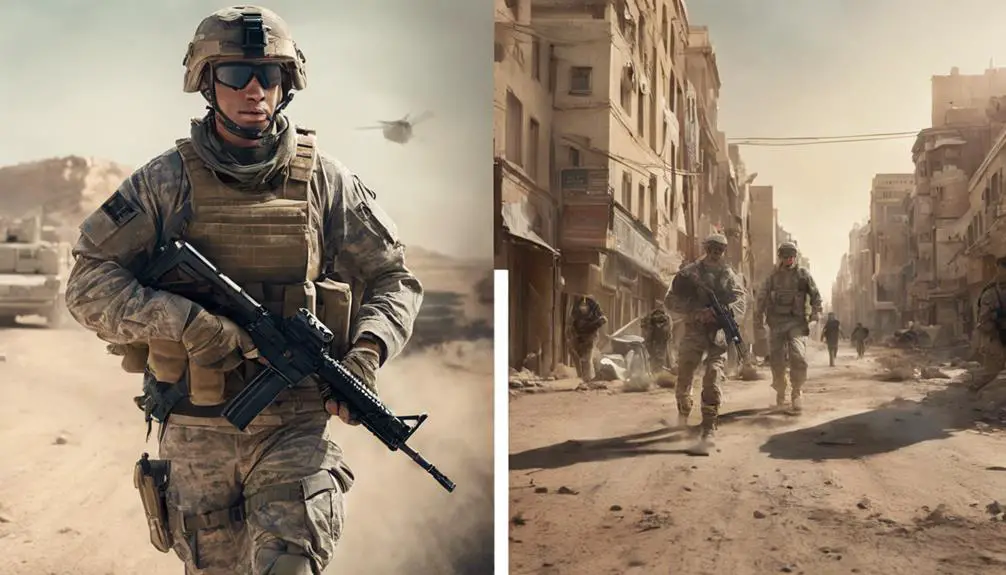
You've likely encountered military slang in your daily life, whether you realize it or not, as phrases like 'Roger that' or 'HOOAH' have become commonplace in civilian contexts. These phrases, once exclusive to military communication, have seeped into our everyday language, demonstrating the cultural assimilation of military slang into civilian applications.
You might use 'Sitrep' (situation report) to brief your team on a project's status or tell a friend to 'Gear up' for a challenging task ahead. Military slang has become an integral part of our linguistic repertoire, and its widespread adoption is a reflection of the significant impact of military culture on our daily lives.
Incorporating military slang into civilian life has also led to increased efficiency and clarity in communication. For instance, using 'Alpha Bravo Charlie' to clarify pronunciation can facilitate smoother interactions. Additionally, adopting military-inspired terminology can foster a sense of camaraderie and shared purpose, much like it does among soldiers.
As military slang continues to permeate our daily lives, it's clear that its influence extends far beyond the battlefield, shaping the way we communicate and interact with one another.
Frequently Asked Questions
Can Civilians Use Military Slang in Informal Conversations?
When you consider using military slang in informal conversations, you might wonder if it's acceptable as a civilian. Be aware that adopting cultural references without understanding their origins can be seen as cultural appropriation.
However, if you're familiar with the context and use the slang respectfully, it's likely to be well-received. Social norms dictate that language evolves through shared experiences, so using military slang can be a way to connect with others who share similar interests.
Are Military Slang and Jargon the Same Thing?
You're about to uncover a linguistic secret.
Are military slang and jargon the same thing? Not quite. While both refer to specialized language, there are technical distinctions.
Jargon typically encompasses complex, technical terms specific to a profession, whereas slang is more informal, conversational, and often colloquial.
Understanding these linguistic nuances is key to mastering the subtleties of language.
Do All Military Branches Use the Same Slang Terms?
When exploring language across organizations, you'll find that terminology often varies. Similarly, you might wonder if all military branches use the same slang terms. The answer is no, they don't. Branch variations in slang exist due to differing histories, cultures, and operational focuses.
Slang evolution occurs within each branch, shaped by unique experiences and traditions. While some terms are shared, others are specific to a particular branch, reflecting their distinct identity.
Is Military Slang Only Used During Active Duty?
You might assume that military slang is only used during active duty, but that's not entirely true. While it's true that some slang terms are specific to certain deployments or units, many veterans continue to use military slang in their daily lives after moving back to civilian life.
In fact, slang evolution often occurs during the veteran adjustment, as service members adapt their language to fit new contexts.
Can Military Slang Be Used in Professional Writing?
When writing professionally, you should be mindful of your tone and adhere to formal standards. While slang can be engaging, it's generally not suitable for professional writing.
In formal writing, you want to convey authority and credibility, which slang can undermine. Stick to standard language to maintain a professional tone, avoiding colloquialisms and informal expressions. This guarantees your message is conveyed clearly and respectfully, without compromising your credibility.
Conclusion
You've now mastered the basics of military slang, from 'FNG' to 'HOOAH!'
But did you know that military slang is so pervasive, it's estimated that up to 40% of military veterans continue to use military slang in their everyday language even after leaving the service?
This statistic highlights the lasting impact of military culture on language.
As you continue to explore the world of military slang, remember that it's not just a set of words – it's a reflection of the camaraderie and shared experiences that define military life.

